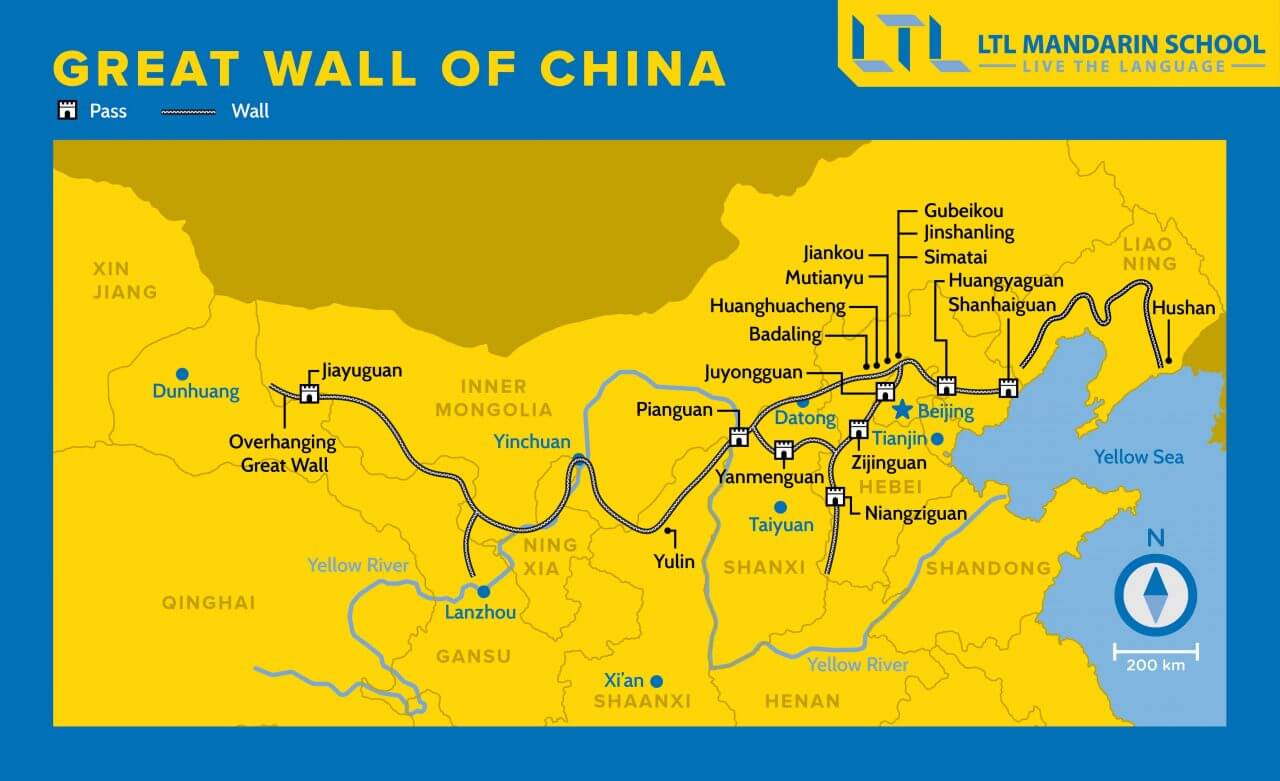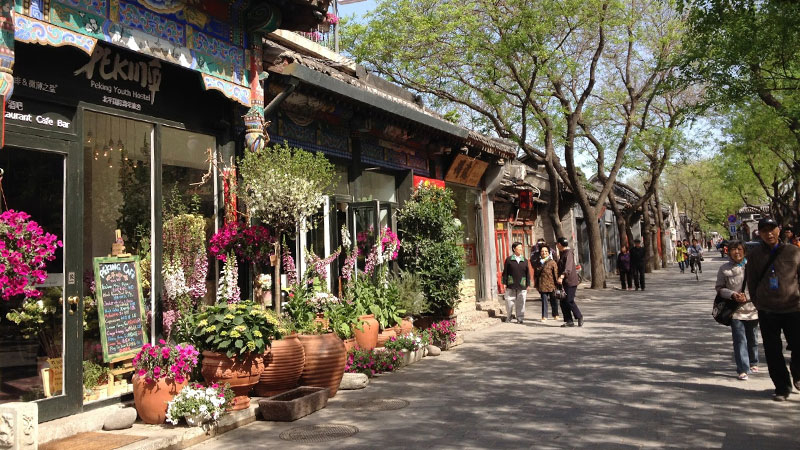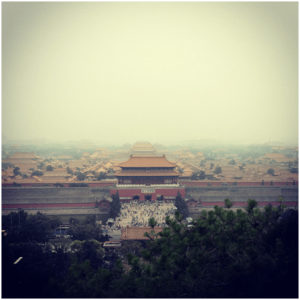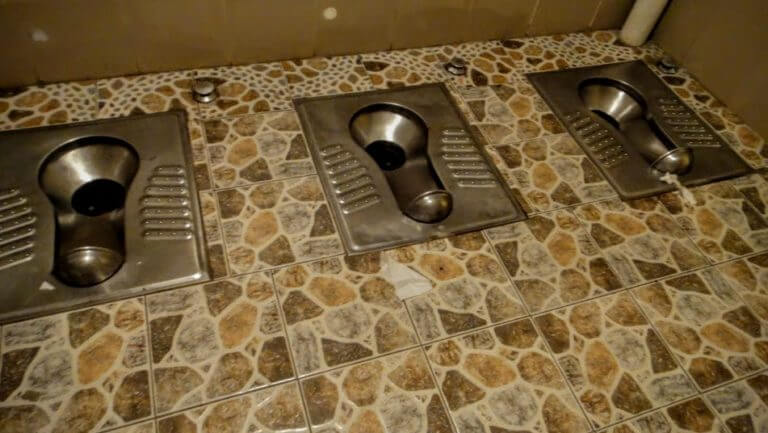Travel Tips for Beijing – 9 Tips for a Smooth Trip to China’s Capital City
With long history, rich culture and nice people, Beijing is a city which deserves several days of your time.
However, being such big city, with so many things to explore, it can be hard to find your way around.
You can be faced with a huge amount of information which can be overwhelming so we have chosen some of the key information you will need to get the most out of your stay.
Travel Tips for Beijing – Utilise the Subway
Travel Tips for Beijing – Getting to the Great Wall
Travel Tips for Beijing – Enjoy the Local Food
Travel Tips for Beijing – Check if You Need Tickets
Travel Tips for Beijing – Shichahai and Nanluoguxiang
Travel Tips for Beijing – Bargain!
Travel Tips for Beijing – Choose the Time of Year wisely
Travel Tips for Beijing – Learn Some Chinese Phrases
Travel Tips for Beijing – Get a VPN before coming
Travel Tips for Beijing – BONUS : James’ Story
1. Travel by Subway
With over 29 lines and more than 500 stations, the Beijing Subway is one of the largest and most efficient networks in the world.
It’s also incredibly affordable, with fares starting at just 3 RMB (less than 50 cents USD), making it a great option for travelers on any budget.
👉 Signs and announcements are in both Chinese and English, which makes navigating the system much easier for non-Mandarin speakers. Most major tourist attractions—including the Forbidden City, Temple of Heaven, Summer Palace, and the Great Wall transit hubs—are all accessible via subway.
If you’re planning to use the subway regularly during your stay, consider picking up a Beijing Yikatong card (also called a transportation smart card). This rechargeable card works on buses and subways and saves you from needing to buy a ticket for each trip.
While the subway can get extremely crowded during rush hours (around 7:30–9:30 am and 5:00–7:30 pm), it remains a safe and convenient way to explore the city. Just avoid traveling with large luggage during busy times and be ready for a quick security check when entering each station!
Want to ask people in Beijing about Beijing? Check out our Beijing Q&A Forum Page!
2. Plan Travel to the Great Wall
The Great Wall is a must-see spot for every traveler to China and Beijing.
There are several ways to take this trip.
By public bus
You may take public bus 919 from Deshengmen to Badaling section.
If you choose this way, do come back in early afternoon as there are usually around one thousand people waiting for the bus back, which may keep you waiting in line for quite a while. Badaling is the busiest spot of the wall for Chinese tourists so choose your section of the Great Wall with care.

Rent a car or taxi
If you are travelling in a group, you can also rent a private car with a local agency or a taxi to the Great Wall.
The shared price is not much and you can get to your favourite wall section and have a pleasant experience.
Join a coach tour
If you are a single traveler or with just one or two friends, you may like to join a coach tour.
Various tour itineraries are available from local agencies. The average price is about USD30 per person including pick-up and drop-off, English guide, air-conditioned coach, lunch and entrance fees.
3. Enjoy the Local Food
One of the absolute highlights of visiting Beijing is diving into its rich food scene.
A must-try is the world-famous Peking Duck, known for its crispy skin, tender meat, and the ritual of wrapping it in thin pancakes with scallions and hoisin sauce. Quanjude and Da Dong are two popular restaurants where you can enjoy this iconic dish, but smaller, family-run spots can offer a more local and intimate experience.
For a more casual (and adventurous!) food tour, head to Wangfujing Snack Street, where you’ll find skewers of lamb, fried dumplings and also sorts of local delights.
Don’t miss out on zhajiangmian (noodles with soybean paste), jianbing (a savory breakfast crepe), and baozi (steamed buns), all staples of Beijing street food culture.
A great cost effective dinner is dumplings. Mr Shi’s dumpling restaurant one of the nest dumpling restaurants in the city serving a great variety of boiled and fried dumplings. He has restaurants throughout Beijing.

A Beginners Guide on How to Eat and Order Chinese Hot Pot
Chinese hot pot (火锅 huǒguō) literally means fire-pot. It’s history goes back over 1,000 years. It is one of the most traditional and popular meals in China.
4. Check if You Need Tickets
🎟️ Must-Book in Advance
The Forbidden City (Palace Museum) – Advance booking is mandatory—no walk-ins allowed.
You must book through the official Palace Museum website or via a trusted travel platform (ID/passport needed). Tickets often sell out days in advance, especially in high season.
The Great Wall (Some sections)– Badaling: Requires advance booking online with ID/passport. It’s the most popular and can get crowded.
Mutianyu: Usually allows same-day entry, but booking ahead is advised on weekends or holidays.
Temple of Heaven – Entry is usually available on the day, but combo tickets for access to the main halls (like the Hall of Prayer for Good Harvests) may require advance purchase during peak times.
Mausoleum of Mao Zedong (Chairman Mao Memorial Hall) – Free, but you must reserve a ticket online the day before with your ID/passport.
National Museum of China – Free entry, but you must reserve online in advance with ID. Tickets often get snapped up fast.
Summer Palace & Old Summer Palace (Yuanmingyuan) – Tickets can usually be bought on site, but booking online is recommended for convenience, especially for the combo tickets that include boat rides or special exhibitions.
⚠️ Good to Book in Advance (but not always necessary)
Beijing Zoo (esp. Panda House)
Beijing Aquarium
Beijing Capital Museum
Beijing Olympic Park attractions (like the Bird’s Nest tours)
5. Walk Around Shichahai and Nanluoguxiang area
Walking in old Beijing’s Hutong area is a very unique experience.
Shichahai area is nice for an evening stroll. You will find many featured restaurants, bars and cafes, shops transformed from traditional courtyard houses.
Many bars have live music performances and outside couches by the lake.
Rickshaw rides and lake boating are also good choices. The Nanluoguxiang Hutong 南锣鼓巷 is full of authentic Beijing atmosphere. Shichahai is just as beautiful with plenty of natural scenery nearby.

6. Don’t be Afraid to Bargain
In Beijing market stall owners usually give you a high offer for every item, so do not be afraid to bargain hard.
You can start your bid at around 20% of their first offer, often even more.
It is a wise tactic to speak out the amount you are willing to pay.
If they do not accept, walk out. They will most likely call you back.
The best places for you to choose items are:
- Silk Street Market (North of Dong Chang An Avenue, Jianguimenwai Street, Chaoyang District 930 am-9pm), Beijing Yashow Market (Gongti Beilu 58, Chaoyang District)
- Hongqiao Pearl Market 36 Tiantan Donglu, Chongwen District, 830am-7pm.
The majority of workers at these markets can speak enough English to communicate and some speak several other languages.
7. Choose the Time of Year Wisely
This is crucial for a number of factors:
- Weather – if you don’t like hot. Avoid July and August. It’s that simple
- Chinese Holidays – you’d be foolish to think, “how bad can it be”. If you visit during the first week of October, you are stepping into one of the biggest human migrations on the planet.
- Prices – they’ll vary throughout the year, as with anywhere. Try and enjoy off peak times. It makes a huge difference not just to the price, but your experience in China.
In a nutshell, April and September/October (bar Golden Week, October 1st-7th) are the best times to visit for all the above factors.
8. Learn Some Chinese Phrases
Even though many signs in Beijing are in English and younger locals often speak some English, learning a few basic Chinese phrases can go a long way in making your trip smoother and more enjoyable.
Locals really appreciate the effort, and it can be helpful when ordering food, asking for directions, or shopping at markets. Here are a few handy phrases to get you started:
-
你好
(nǐ hǎo) – Hello
A friendly, simple greeting you can use with anyone. -
谢谢
(xièxie) – Thank you
Always appreciated, and easy to remember! -
多少钱?
(duōshǎo qián?) – How much is it?
Useful when shopping or browsing local markets. -
我要这个
(wǒ yào zhège) – I want this one
Just point and say this—perfect when ordering street food or picking souvenirs. -
厕所在哪儿?
(cèsuǒ zài nǎr?) – Where is the bathroom?
A very useful phrase, especially in busy tourist areas or subway stations.
If you’re feeling ambitious, downloading a translation app like Pleco or using the translation feature in WeChat can help bridge the gap even more. But even just using these five phrases will make a positive impression and help you feel more connected while exploring Beijing!
9. Get a VPN BEFORE Coming
If Whatsapp, Instagram, X or YouTube access matters to you – FOLLOW THIS TIP!
Chances are, you use at least one of the above on a daily basis. China blocks them, along with many other websites, including Google (check out the full list of websites banned by China here).
Luckily, using a VPN allows us to get around this and access these sites/apps in China.
And as for the best VPN to use in on your trip to China? We’d recommend…
BONUS – James’ 5 Favourite Things in Beijing
A former student of ours James from the UK has provided a bonus section and told us his 5 favourite things about Beijing – enjoy!
To summarise my overall experience in China would take up the best part of an entire evening, let alone a single A4 page.
Nevertheless, below are my 5 favourite things about Beijing:
The History

It goes without saying that China’s history is one of the most rich, interesting and historically important in the entire world.
From the Great Wall, to the Summer Palace, there are some truly impressive places to visit.
If you can find your way past the throngs of people that litter each and every (seemingly identical) square and courtyard of the Forbidden City 故宫, you experience a place that, in my opinion, brings you closest to Chinese history (other than the Great Wall).
Walking through the enormous palace, you truly feel the weight and power of China as a country and the rich and unique history that comes with it.
Without a doubt, the best place to get a good view of the Forbidden City is from the top of Jingshan Park (景山公园), where you get a fantastic panoramic view of 故宫 (even on a bad day).
The Nightlife
The nightlife in Beijing is, as you’d expect from a capital, usually relatively quiet during the week, but takes off on the weekend and is a great night out.
For those wanting to experience proper Chinese nightlife and a more ‘authentic’ Chinese experience, a trip to one of Beijing’s many KTV bars beckons.
From the very first KTV night I went to I was hooked on singing (terribly, I might add) everyone from Robbie Williams to Queen.
The Food

As someone who has grown up loving Chinese food, it’s probably fairly obvious that one of the things I love most about Beijing is the food.
China (if you hadn’t noticed) is a vast country and that lends opportunities to an incredibly varied and diverse landscape for food.
I can’t think of a better place to experience this diversity than in the capital, Beijing.
From some of my personal favourites, such as: Ganguo tudou pain 干锅土豆片 , Gongbao Chicken 宫保鸡丁 or Dumplings 饺子 , to those that are a little more obscure, such as pig’s ear, or even sheep brain hotpot.
The Chinese are infamous for eating ‘everything’, and you certainly feel that sometimes this is the case!
It’s an experience either way and some things just have to be tried (I personally wouldn’t recommend silkworm, however).

Do all Chinese eat Dog? What’s the Truth?
Do Chinese eat Dog? What is the truth? The world is of strong belief all Chinese people love to eat dog. It’s time to kill the stereotype.
The People
It is largely down to the people that make Beijing such an incredible place.
This extends not only to the people you meet at LTL, but also to people you will stumble across at bars, clubs, or tourists spots with people asking to take your photo simply because you don’t have black hair!
It may be an enormous city but there still is a certain charm to Beijing and this is partly thanks to its people, whom are incredibly welcoming of foreigners.
There seems to be a fantastic balance between the hustle and bustle that you would expect from a major capital and the deeply ingrained traditions that form Chinese culture.
The ‘Quirks’
Lastly, but certainly not least, what made Beijing such a fascinating experience was the side of Beijing that you sometimes see on a day-to-day basis.
Ranging from some interesting fashion senses, such as the ‘Beijing Bikini’, to the downright strange (for example: a man walking around carrying a live turtle on a stick, to even a young girl with ACTUAL snails sitting on her hand while I was waiting for a takeaway, as if that were normal behaviour…).

Little things that make you do a double take, even when you become accustomed to being ‘surprised’ in Beijing.
It is with a heavy heart that I must write this, not knowing when I’ll next get the chance to go to Beijing.
Having spent 5 out of the past 10 months there, I’ve really grown fond of the place.
China is a country like no other and an incredible place to be not only for foreigners new to Asia, but even ones who have spent most of their lives in Asia, as I have.
I am really grateful to LTL for providing the platform for me to hone my Mandarin skills and experience Beijing life as if I were a local.
Having the chance to live with a local family truly opens your mind to Chinese culture and a local way of life, not to mention the chance to meet people who will likely welcome with open arms if you ever find yourself in Beijing again.
I am also truly grateful to all the people I met along the way, whether it be the other students at the school, new local friends whom I grew close to over time, or even those I met while I had the opportunity to travel around China.
A truly fantastic experience, and one I wish I could experience all over again!
Till next time, Beijing. 我想你中国! (I miss you China!)

Things That Shocked Me About China
Culture Shock in China can happen to anyone at any time, and it affects everyone differently. China, however, is in a whole different league. We explain why.
Thanks to James for his contribution above.
Have you been to Beijing? What did you think? Tell us below about if you’ve been or if you want to come!
Travel Tips for Beijing – FAQs
When is the best time to visit Beijing?
In a nutshell, April and September/October (bar Golden Week, October 1st-7th) are the best times to visit.
Is Summer hot in Beijing?
Yes, very. The weather in Beijing should be reviewed before booking a trip.
Is Beijing expensive?
Compared to most cities in China, yes. Compared to most worldwide capitals, not so much.
Is Beijing safe for tourists?
Yes, Beijing is generally very safe for tourists. Violent crime is rare, and petty crime like pickpocketing is relatively uncommon, especially in tourist areas. Just take normal precautions: keep your belongings secure, especially in crowded places like the subway or markets, and be cautious of scams around popular attractions. Most locals are friendly and helpful, even if there’s a language barrier.
Can I use Google, WhatsApp, or Instagram in Beijing?
Not without a little preparation. These apps and many other Western websites (like Facebook, Gmail, YouTube, and Google Maps) are blocked in mainland China.
To access them, you’ll need to set up a VPN (Virtual Private Network) before you arrive in Beijing. Some popular VPNs include ExpressVPN, NordVPN, and Surfshark, but availability can change, so always check current reviews and recommendations. Alternatively, try using Chinese apps like WeChat (for messaging) or Baidu Maps (for navigation).


 Hi, my name is Mojca! I am from Slovenia and I work as a student advisor at our Shanghai school.
Hi, my name is Mojca! I am from Slovenia and I work as a student advisor at our Shanghai school.









4 comments
[…] Coming to Beijing and looking for something to do free or cheap in Beijing? Beijing is quickly becoming one of the most popular tourist spots to enjoy the cherry blossoms in China, and with good reason! Aside from the view from your window down at your apartment complex’s gardens, there are numerous places to enjoy the blooming of the many different types of blossoms throughout Beijing. […]
[…] feel so if you live in Taipei. Nevertheless, you will agree with me if you live outside Taipei or travel to another city or county. Furthermore, there’s a tendency that the further south you travel, the […]
[…] feel so if you live in Taipei. Nevertheless, you will agree with me if you live outside Taipei or travel to another city or county. Furthermore, there’s a tendency that the further south you travel, the […]
[…] most common places to buy Tea in Beijing is at Mailandao Tea Street or in Shanghai at Tianshan Tea […]